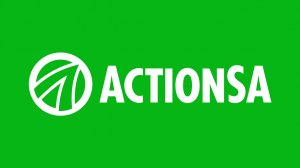April 25, 2024.
For Creamer Media in Johannesburg, I’m Halima Frost.
Making headlines:
ActionSA blames ANC for SA’s low economic growth forecast
Some uncertainties remain around incoming visa regime changes
And, Inflation in key African economies to slow into next year
ActionSA blames ANC for SA’s low economic growth forecast
With the International Monetary Fund’s latest economic growth forecast for South Africa at 0.9%, ActionSA is blaming the dismal outlook for 2024 on the African National Congress.
ActionSA said it was “concerned” about the “dire” state of the country’s economy and blamed the low growth forecast on loadshedding, corruption and “dismal” ANC policies.
ActionSA said from 2014 to 2023, economic growth averaged 0.76% a year, much weaker than the population growth rate of 1.15% during the same period.
It also pointed out South Africa’s “worsening” credit rating and the resultant high debt interest payments.
It punted its own plan to boost economic growth if it comes into government, and promised to lower the debt burden, sustainably.
Some uncertainties remain around incoming visa regime changes
Government is changing the way the South African visa system works and immigration law experts have lauded this positive step to enable more foreign skilled labour into the country, but they stress that some clarifications are still needed.
Law firm Cliffe Dekker Hofmeyr said the historical visa system had been cumbersome for many South African an international businesses looking to appoint skilled foreigners into their organisations.
The Department of Home Affairs recently introduced changes to the manner in which visas are granted in South Africa, including by introducing a point-based system. However, CDH employment law director Imraan Mahomed said the manner in which points were to be allocated still needed to be gazetted for public comment.
Moreover, the DHA is setting in place regulations for digital nomad visas by amending the country’s immigration laws. The amendments will allow foreigners earning more than R1-million a year to take out a digital nomad visa.
CDH employment law senior associate Taryn York said it was unclear whether the R1-million requirement related to gross or net salary, which would impact on the number of people that could qualify for these visas.
Inflation in key African economies to slow into next year
Inflation in key African economies will slow into next year but remain stubbornly high in Nigeria due to sporadic flooding and difficult terrain for the naira currency, a Reuters poll found.
The acute shortage of dollars in much of the continent including Angola, Nigeria and Zambia has often put home inflation under significant strain due to a reliance on single commodity currency inflows such as crude oil and copper.
Still, the poll of 15 analysts taken in the past week showed inflation would moderate more in countries with better diversified sources of dollar revenues such as Kenya.
Inflation in Nigeria is expected to quicken to 29.1% this year from an average of 24.5% last year, before it slows to 17.2% next year. It hit a 28-year high of 33.2% in annual terms last month.
Nigeria central bank governor raised the monetary policy rate by 200 basis points to 24.75% last month after a 400 basis point hike in February.
That’s a roundup of news making headlines today
Don’t forget to follow us on the X platform, at the handle @PolityZA
EMAIL THIS ARTICLE SAVE THIS ARTICLE ARTICLE ENQUIRY
To subscribe email subscriptions@creamermedia.co.za or click here
To advertise email advertising@creamermedia.co.za or click here










